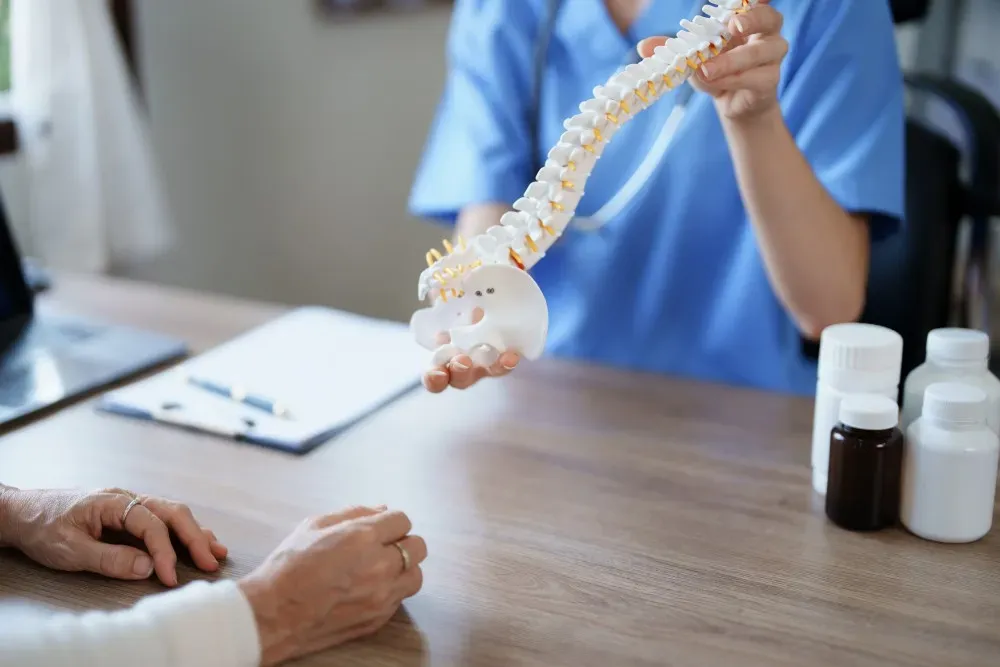Neurosurgery & Orthopedic Surgeons in Jacksonville

How Do I File an Insurance Claim After a Car Accident?
It’s likely that you’ll be involved in a car accident at least once in your life. When that situation occurs, it’s important for you to know the steps you should take next to protect your health, safety and finances.
HOW DO I FILE AN INSURANCE CLAIM AFTER A CAR ACCIDENT?
It’s likely that you’ll be involved in a car accident at least once in your life. When that situation occurs, it’s important for you to know the steps you should take next to protect your health, safety and finances. First, catch up on our past blog: 4 steps you should take following a car crash.
In this blog, we’ll discuss how to proceed with one of the most components of protecting yourself after an accident: filing an insurance claim. Keep reading to learn the process.
WHAT SHOULD I DO AT THE SCENE OF THE ACCIDENT?
First, make sure you, the other driver and any passengers are OK and don’t need immediate medical assistance. Call the police at the scene, even if the accident was a minor fender bender. Even if your car isn’t damaged and you’re not in any pain now, damages and injuries may appear down the road and it’s best to have a record of the accident on hand. Additionally, having a police report will speed up the claims process when you file an insurance claim. Your insurance company will use the official report to make an assessment of the accident and determine who is at-fault.
While you’re waiting for the police, you’ll need to collect some information that the reporting officer and your insurance company will need. Gather the following documentation:
- The other driver’s name and contact information
- The other driver’s insurance company and policy number
- The make, model and license plate number of the other driver’s car
- The names and contact information of any witnesses or passengers
- Personal notes on how the accident occurred, the location, what direction each car was driving, the weather and road conditions
- Photos of vehicle damage
Don’t discuss details of the accident with the other driver — collect his or her information, but only speak to a police officer and your insurance company about everything else. Let the police and insurance determine who was at-fault.
Once the reporting officer arrives, take down his or her name and badge number, and ask for a copy of the police report before you leave the scene. Now you’re ready to file an insurance claim.
HOW TO FILE A CLAIM
Filing a claim is fairly straightforward if you collected thorough notes and documentation at the scene of the accident. Florida is one of 12 no-fault states, which means that you have to use your own auto insurance coverage to pay for damages and medical expenses, regardless of who the at-fault driver is. Your insurance company will work directly with the other driver’s insurance company to determine fault and come to a settlement agreement for damages.
On your end, all you need to do is call your auto insurance company. Most companies have a claims department that is available 24/7, even late at night and on weekends. Call your insurance company as soon as possible following a car accident. Sooner is better because all the details of the accident will be fresh in your mind. Additionally, an insurance representative will walk you through exactly what types of coverage your policy has and the amounts for each.
Your policy will have some or all of the following coverages:
- Collision coverage
- Personal injury protection
- Medical payments coverage
- Lost wages coverage
- Transportation expenses
- Uninsured/underinsured motorist coverage
When you call your insurance company after an accident, a representative will walk you through filing a claim. He or she will take down information about the accident, tell you what kind of insurance coverage you have, help you find a car rental company if you have transportation expenses coverage, and ultimately pass your case along to an adjuster. An adjuster will handle the bulk of the claim — he or she will conduct a comprehensive review of the accident and work with the other driver’s insurance company to settle damage or personal injury claims from the at-fault driver.
THE CLAIMS PROCESS
Once you file an insurance claim, your insurance company will handle most of the work on your behalf. You may need to answer questions, send in documentation or make a statement, but you shouldn’t have to speak with the other driver or their insurance company. On your end, here are the things you need to do during the claims process:
- Get your car repaired. Your insurance company may have a list of preferred providers for car repair shops. Using a preferred provider can be convenient and faster for you, because your insurance company will pay the shop directly for repairs. Ultimately, however, the choice of repair shops is yours. You can get estimates from several shops or choose a shop you already know and trust. Keep in mind that wherever you choose to entrust your car, if the estimate for repairs is higher than what your collision insurance covers, you’ll have to pay the difference out of pocket.
- See a doctor. Always seek medical care following a car accident. Sometimes, pain and injuries don’t appear until hours or days after an accident. This is especially true for common car crash injuries like whiplash, concussions and soft tissue injuries. Whiplash is one of the most common accident injuries, and it’s often undiagnosed, misdiagnosed or mistreated. Untreated injuries now can lead to chronic pain and injuries later. Instead of calling your primary care physician, who may not have the training and experience to diagnose and treat accident injuries, seek care from a specialist like Integrity Spine and Orthopedics.
- Recover. Serious car crash injuries may have a long recovery period. Depending on the severity of your injuries, you may need to miss work or modify your normal activities while you heal. Your doctor-prescribed treatment plan may include rest, medications, physical therapy and counseling for trauma. It’s important that you follow the recommendations from your doctor to make a complete recovery. If you move too quickly to return to your normal activities, you may worsen your injuries and delay a full healing. If you have financial concerns, check with your insurance company to find out what kind of lost wages, personal injury and/or medical expenses coverage you have. If your insurance policy doesn’t cover medical bills, your health insurance may cover auto accident injuries.
- Save all documentation. As you move through the recovery process, save all documentation related to your accident. That includes a breakdown of the estimate and repairs from the car repair shop, doctor visit notes, prescriptions and a record of every physical therapy and follow-up visit you attended. Save all this documentation to ensure that you’re reimbursed for all expenses by your insurance company.
INTEGRITY SPINE AND ORTHOPEDICS TREATS CAR CRASH INJURIES
Contact Integrity Spine and Orthopedics if you experience pain or injury from a car crash. Our board-certified team of doctors specializes in pain management, general orthopedics, regenerative medicine and minimally invasive spine surgeries to treat a wide range of spine, muscle and joint conditions.
Don’t let a car collision injury disrupt your life for long. Let us help you get back on your feet and back to participating in the activities you love. Call us today at 904-456-0017 to schedule an appointment or fill out our contact form and we’ll be in touch soon.




